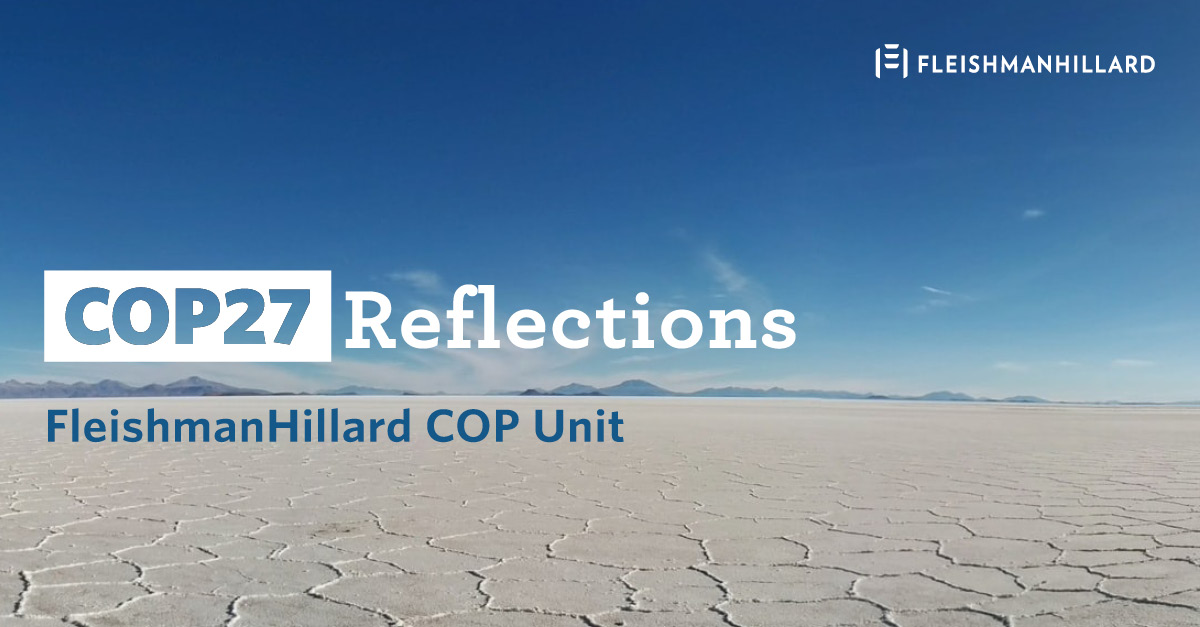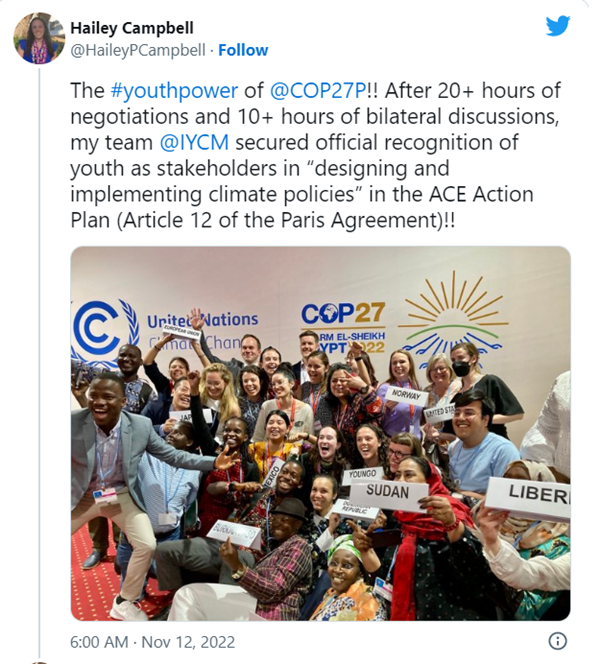FleishmanHillard COP27 Reflections: Youth take their seat at the table

Jamal Johnson, graduate trainee, Consumer Brand, Youth & Culture
Week one of COP27 was dominated by the arrival of world leaders and negotiations to scale up the investment needed to tackle the climate crisis. And while this COP feels a little lacklustre in comparison to years past (including the notable absence from Greta Thunberg), the voice of youth staked a new claim at the Summit with the first-ever dedicated COP platform.
On Wednesday, a dedicated Youth and Future Generations Day saw the UNFCC’s official youth constituency, YOUNGO, sharing a ‘Global Youth Statement,’ contributed to by young people from 149 nations of the 193 participating in climate diplomacy through the UN. The statement underlined key policy asks including demands specific to Action for Climate Empowerment, Adaptation and Resilience and Accessible Finance that were determined during COY17 (which convened over 1,000 young people from more than 140 countries before the official opening of COP27).
At the end of the week, another encouraging update: YOUNGO secured official recognition as stakeholders in designing and implementing climate policies.
A focus on vulnerable communities
Many young activists at COP27 spoke about the link between climate change and human rights. With the summit hosted in Egypt this year – where freedom of speech and association are restricted – human rights were brought even more to the fore. But with an estimated 200 million young people aged 15 to 24 in Africa, the event offered a platform for a Young Africa session to highlight and discuss youth-led solutions from Egypt and the rest of the continent.
Another overarching key message heard was a desire from young people for world leaders to listen to and prioritise policies that will protect those most affected by the climate crisis, notably Indigenous Peoples across the globe. Ugandan climate justice activist Vanessa Nakate (also absent alongside Greta) called out climate finance discussions for needing to better tackle resilience and adaptation when it comes to climate loss and damage.
This theme of resilience and adaptation is one that the younger generations know well and is central to today’s COP27 activity. Not only are younger generations living through the most tumultuous years of their lives, but they have experienced a whole host of ‘unprecedented’ global happenings, from COVID-19 to political extremism to economic turmoil. They are one of the most resilient and adaptive generations since the World Wars and from that, we should take confidence.
Several young voices, including some as young as 13 years old, were listened to, with Antonió Guterres, Secretary General of the United Nations, praising young people’s role in fighting climate change and highlighting their ‘relentless’ persistence in fighting for action.
It remains to be seen how instrumental COP27 will be in the fight for our planet. One thing is for sure, young people won’t sit idly by. The impact of climate change is wide-ranging and significant, across health, nutrition, education and the future of children, adolescents and youth, who are the most vulnerable to extreme weather events, toxic chemicals, temperature changes and eco-anxiety. They will mobilise and ensure that everyone hears their united voice. Which leaves me very hopeful that significant change will come.

Find Out More
-
Platinum CMS Award
March 13, 2024
-
Changing Communications Tack at Mobile World Congress
February 21, 2024


